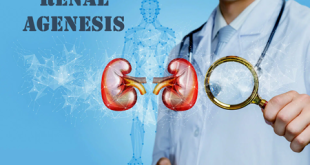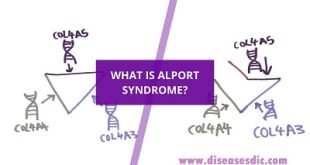Definition
Prader-Willi syndrome is a complex genetic condition that affects many parts of the body. In infancy, this condition is characterized by weak muscle tone (hypotonia), feeding difficulties, poor growth, and delayed development. Beginning in childhood, affected individuals develop an insatiable appetite, which leads to chronic overeating (hyperphagia) and obesity. Some people with Prader-Willi syndrome, particularly those with obesity, also develop type 2 diabetes (the most common form of diabetes).
People with Prader-Willi syndrome typically have mild to moderate intellectual impairment and learning disabilities. Behavioral problems are common, including temper outbursts, stubbornness, and compulsive behavior such as picking at the skin. Sleep abnormalities can also occur. Additional features of this condition include distinctive facial features such as a narrow forehead, almond-shaped eyes, and a triangular mouth; short stature; and small hands and feet. Some people with Prader-Willi syndrome have unusually fair skin and light-colored hair. Both affected males and affected females have underdeveloped genitals. Puberty is delayed or incomplete, and most affected individuals are unable to have children (infertile).
Epidemiology
Prader-Willi syndrome has been reported worldwide. Reported prevalence rates for Prader-Willi syndrome range from 1 per 8000 population in rural Sweden to 1 per 16,000 population in western Japan. Despite findings that suggest a prevalence rate of 1 per 52,000 population in the United Kingdom, Whittington et al estimate that the actual prevalence rate is higher and propose a true prevalence rate of 1 per 45,000 population.
Prader-Willi syndrome risk factors
Risk factors may also include having a previous child with PWS. Yet, NIPT is difficult to utilize with certainty to search for the 15q11-q13 deletion, the most common genetic cause of PWS.
- Individuals with PWS are at risk for bacterial and fungal skin infections at sites of skin picking and in skinfold (fat) creases.
- Diabetes mellitus type II has been observed in those with PWS, particularly if obesity is present. The risk for diabetes is lowered when weight is reduced.
- Individuals with PWS may be at increased risk for respiratory problems, especially as infants. Problems at birth due to hypotonia, weak chest muscles, and poor swallowing reflexes may include asphyxia, apnea, respiratory failure, and hypoventilation.
- Children with PWS are at risk for osteoporosis/osteopenia, consider a DEXA scan to evaluate for body composition, including bone mineral density, particularly in the setting of a fracture.
Cardiovascular risk is higher in individuals with PWS for a variety of reasons, including:
- Overeating and obesity
- Poor dietary habits
- Diabetes
- Excess work of breathing
- Unexplained elevations of C-reactive protein
- Severe obstructive sleep apnea
- Thrombophilia
In older individuals, these factors can result in hypertension, left ventricular hypertrophy, right-sided heart failure, and pulmonary embolism, particularly in morbidly obese individuals.
Causes of Prader-Willi syndrome
Prader-Willi syndrome is caused by a missing gene on chromosome 15. Normally, parents each pass down a copy of this chromosome. The defect can occur in a couple of ways:
- The father’s genes are missing on chromosome 15
- There are defects or problems with the father’s genes on chromosome 15
- There are two copies of the mother’s chromosome 15 and none from the father
These genetic changes occur randomly. People who have this syndrome usually do not have a family history of the condition.
Symptoms of Prader-Willi syndrome
Typical symptoms of Prader-Willi syndrome include:
- An excessive appetite and overeating, which can easily lead to dangerous weight gain
- Restricted growth (children are much shorter than average)
- Floppiness caused by weak muscles (hypotonia)
- Learning difficulties
- Lack of sexual development
- Behavioural problems, such as temper tantrums or stubbornness
A 10-months-old baby weighs 62 pounds (28 kilograms) – Roughly the equivalent of an average 9-year-old child
Typical findings of hands and legs in individuals with Prader-Willi syndrome
Complications of Prader-Willi syndrome
Obesity-related complications
In addition to having constant hunger, people with Prader-Willi syndrome have low muscle mass, so they need fewer than average calories, and they may not be physically active. This combination of factors makes them prone to obesity and the medical problems related to obesity, such as:
- Type 2 diabetes
- High blood pressure, high cholesterol and heart disease
- Sleep apnea
- Other complications, such as an increased risk of liver disease and gallbladder stones
Complications of inadequate hormone production
Complications arising from inadequate hormone production may include:
Sterility: Although there have been a few reports of women with Prader-Willi syndrome becoming pregnant, most people with this disorder are unable to have children.
Osteoporosis: Osteoporosis causes bones to become weak and brittle, so they may break easily. People with Prader-Willi syndrome are at an increased risk of developing osteoporosis because they have low levels of sex hormones and may also have low levels of growth hormone — both hormones help maintain strong bones.
Other complications
Other complications that can result from Prader-Willi syndrome include:
Effects of binge eating: Eating large amounts of food quickly, called binge eating, can cause the stomach to become abnormally enlarged. People with Prader-Willi syndrome may not report pain and they rarely vomit. Binge eating can also cause choking. Rarely, a person may eat so much that it causes stomach rupture.
Reduced quality of life: Behavioral problems can interfere with family functioning, successful education and social participation. They can also reduce the quality of life for children, teenagers and adults with Prader-Willi syndrome.
Diagnosis and test
PWS is diagnosed using a series of specialized genetic tests. Common chromosome tests such as karyotype do NOT reliably detect genetic changes of PWS. Genetic testing for PWS can be expensive and may require sending blood and saliva samples to specialized laboratories.
DNA Methylation Testing is the best initial test for determining PWS. This test detects >99% cases of PWS. It may also be referred to as “Prader-Willi/Angelman DNA methylation Panel”. All three genetic subtypes of PWS will have a positive DNA methylation analysis for PWS.
The FISH test can be used to determine if the subtype of PWS is deletion, however, it will not detect the other two subtypes of PWS, therefore it should not be used as the first genetic test.
Chromosome Microarray testing can be used to detect chromosome deletions and many cases of uniparental disomy (UPD).
Treatment
Prader-Willi syndrome treatment involves many different medical and social care professionals. Treatment is mainly provided as an outpatient or on a day care basis, although some medical investigations, emergency problems and operations may require overnight stays in hospital. As Prader-Willi syndrome is so complex and causes problems from the beginning of life, families and carers need education about the syndrome as well as support from the start. Patient support groups can be particularly helpful.
There are many different aspects to the treatment of Prader-Willi syndrome:
Management of feeding, obesity and mouth care
- Tube feeding may be needed in newborns and infants for a few weeks or months.
- Management of obesity is essential because drugs and surgery have so far not been of benefit in treating the excess hunger. Bariatric surgery for obesity is also associated with unacceptable risks and is therefore not advised.
- People with Prader-Willi syndrome will need to be supervised to avoid them overeating or being able to buy too much food. Families and carers need to learn, early on, how to control the way food is presented and how easily it is available at home. A low-calorie, well-balanced diet with regular exercise is vital. This type of management affects the patient’s and family’s rights and privacy, so it is important that they have appropriate psychological and behavioural counselling.
- Poor production of saliva may be helped by products designed to increase saliva flow such as special toothpaste, mouthwash and sugarless gum.
Therapy
- Physiotherapy programmes are often used in childhood.
- Speech and language therapy during childhood will help with impaired speech and delay in developing language.
Drugs
- Diabetes mellitus, which is common in Prader-Willi syndrome, may need drugs such as metformin, pioglitazone and sometimes insulin.
- Drugs to lower cholesterol and blood pressure may be needed.
- Growth hormone therapy should be considered in childhood (certainly as early as one to two years, if not between 6 to 12 months) to improve growth during childhood, adult height, reduce body fat, increase muscle and bone strength and quality of life, and possibly help brain development and function. This may also be effective even after completion of growth in adulthood.
- Occasionally thyroid hormone and rarely, steroid hormones (hydrocortisone) may be needed.
- At some stage, almost all patients will require sex hormonal treatment (testosterone in boys, oestrogen and progesterone in girls) to help start or maintain puberty.
- As adults, treatment with sex hormones is often needed for bone and metabolic health and possible benefits to mental, emotional and physical wellbeing in both boys and girls, and muscle mass in boys.
- Infections from any skin lesion may need treatment with antibiotics.
Surgery
- If the testes have not descended in boys they may need fixing in the scrotum through surgery during the first or second year.
- In cases of disturbed breathing at night, surgery to remove tonsils and adenoids may be necessary (especially in children), and sometimes the use of oxygen and machines to help with breathing while asleep (called ‘CPAP’ or ‘NIPPV’).
- Bracing or back surgery are sometimes needed for curvature of the spine.
- Bariatric surgery for obesity is associated with unacceptable risks and is not advised for patients with Prader-Willi syndrome.
Behaviour management
It is important to manage temper outbursts, skin picking and repetitive behaviours in a consistent way by trying to reduce the number of times they occur and to manage them when they do occur.
Severe changes in mood, e.g. depression, or psychosis usually require the expertise of a psychiatrist with experience in people with learning difficulties. People with Prader-Willi syndrome may react strongly to life events, e.g. bereavement or a change in living arrangements. Severe mood changes may also be brought on by changes in routine, sleep disturbance or some medications. Doctors may consider the use of antidepressant or anti-psychotic drugs, starting on lower-than-normal doses with careful monitoring for side-effects.
It is vital that everyone involved in the care of people with Prader-Willi syndrome recognises the difference between the underlying behavioural problems seen in Prader-Willi syndrome and acute psychiatric illness.
Prevention of Prader-Willi syndrome
There is no way to prevent Prader-Willi syndrome since it is a genetic disorder. Adequate prenatal care and healthy habits, such as eating a healthy diet and avoiding tobacco and alcohol, may help reduce the risk of genetic defects in general.
PWS may run in families. If you have a family history of the disorder or already have a child with the condition, speak to a genetic counselor before planning your pregnancy.
Prader-Willi syndrome is a genetic disorder caused due to abnormalities in chromosome 15. This syndrome primarily affects the child’s metabolism, physical appearance, and behavior.
Early diagnosis and the right treatment, including supportive therapies and weight management, can improve the baby’s quality of life.
 Diseases Treatments Dictionary This is complete solution to read all diseases treatments Which covers Prevention, Causes, Symptoms, Medical Terms, Drugs, Prescription, Natural Remedies with cures and Treatments. Most of the common diseases were listed in names, split with categories.
Diseases Treatments Dictionary This is complete solution to read all diseases treatments Which covers Prevention, Causes, Symptoms, Medical Terms, Drugs, Prescription, Natural Remedies with cures and Treatments. Most of the common diseases were listed in names, split with categories.







